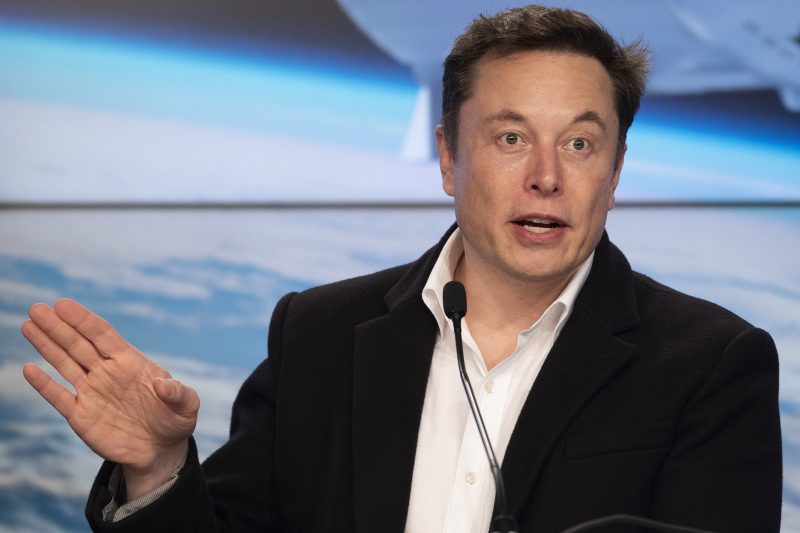US court to hear contempt case against Tesla’s Musk
A US court will hear arguments Thursday on whether Tesla CEO Elon Musk should be held in contempt for violating a settlement with securities regulators (Jim WATSON)
New York (AFP) – Elon Musk’s messy Twitter habit will get a once-over on Thursday when a federal court weighs whether the controversial Tesla chief executive should be held in contempt of court.
His attorneys and the US Securities and Exchange Commission are scheduled to appear before US District Judge Alison Nathan, who will hear arguments on the agency’s request to crack down on Musk for allegedly violating the terms of a settlement Nathan approved in October.
Musk’s removal as CEO is not seen as a very likely result of the latest fight, although a finding of contempt could make such an outcome more likely down the road, analysts said.
Tesla’s press office did not respond to queries on whether Musk would attend the hearing.
The October agreement required Musk to step down as chairman and pay $20 million to settle charges he defrauded investors with false claims on Twitter in August about a possible go-private transaction that was quickly aborted.
Tesla was also fined $20 million.
The settlement, which allowed Musk to remain as CEO, required the CEO and other senior officers to obtain pre-approval from Tesla counsel before making written communications “that contain, or reasonably could contain, information material to Tesla or its stockholders.”
– ‘Nobody’s perfect’ –
The hearing is the latest event in Musk’s running battle with the SEC, which he derided on Twitter as the “Shortseller Enrichment Commission” on October 4, days after the SEC settlement was signed but before it was finalized in court.
Musk also blasted the agency in a December “60 Minutes” interview where he acknowledged his tweets were not being reviewed.
“I guess we might make some mistakes. Who knows?” Musk said. “Nobody’s perfect.”
“I want to be clear. I do not respect the SEC,” he said. “I do not respect them.”
The agency took action after Musk tweeted on February 19 that Tesla would make 500,000 cars in 2019 — up from the 400,000 that the company had estimated until then, an apparent increase on a benchmark tied to profitability.
Musk corrected himself four hours later, saying that Tesla would indeed produce about 400,000 cars this year: “Meant to say annualized production rate at end of 2019 probably around 500k.”
Six days later, the SEC asked Nathan to hold Musk in contempt for violating the settlement, arguing that Musk had not made “a diligent or good-faith effort” to honor the commitment to seek review for a statement that could be “material,” or consequential to investors.
Musk “once again published inaccurate and material information about Tesla to his over 24 million Twitter followers, including members of the press, and made this inaccurate information available to anyone with Internet access,” the agency said.
In response, Musk’s lawyers argued that the production figures were not material and that Musk had shown “diligence” in following the order, cutting his average monthly Tesla-related tweets “nearly in half.”
Musk’s attorneys also accused the SEC of an “unconstitutional power grab” that flouted Musk’s free speech rights and “smacks of retaliation and censorship” over the executive’s remarks on “60 Minutes.”
Erik Gordon, a professor at the Ross School of Business at the University of Michigan who has also taught at its law school, expects Musk’s arguments on freedom of speech to be discounted because they concern remarks that were governed by the settlement Musk and Tesla signed.
Gordon said the argument on whether the tweet was material may be taken more seriously, although Tesla production figures are closely watched by investors.
He said the court could impose a sanction short of the CEO’s removal but that a contempt finding could be used later to oust him if Musk continues to act out.
The “60 Minutes” interview feeds the image of Musk as a “guy who habitually displays contempt for authority” and undermines claims that he has been careful and diligent in trying to follow the settlement, Gordon said.
CFRA Research analyst Garrett Nelson said additional fines and social media restrictions were the most likely outcome of the current battle but that a possibility of more severe punishment had weighed on shares.
– Governance issue –
Analysts note Musk also owns a large stake in Tesla, which would likely make him a presence in the company even if he were barred as CEO.
“If he did get removed as CEO, he’d probably get some type of creative director job at Tesla because making or thinking of cool things is what he’s very good at,” said Morningstar analyst David Whiston.
“Then you have a tricky governance problem because the former CEO… is still there, probably telling people what to do, and he owns over 20 percent of the company,” Whiston added in an email.
“I wouldn’t want to be the new CEO in that situation.”
Disclaimer: Validity of the above story is for 7 Days from original date of publishing. Source: AFP.


